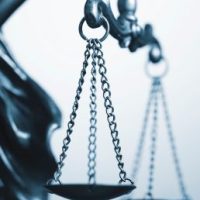SBA Employee Accused of COVID-19 Relief Fraud

The summer of 2020 seems like a lifetime ago. Some people shut themselves off from the world and lost themselves in online content that fed their worst impulses, while others learned to cook from scratch and texted pictures of their culinary creations to their relatives in all corners of the globe, and still others made every effort to maintain social connections through in-person contact, no matter how many times they got infected with COVID. It was a long time ago that restaurants were open for takeout only and everyone wore masks in public, but in some ways, the pandemic never ended. Our bad mood never lifted, and neither did the financial stresses underlying it. Call it financial long COVID. What did end is the pandemic era social safety net, the one that saved some people from financial catastrophe and caused others to imagine a future with universal basic income. Meanwhile, the criminal cases about financial crimes related to COVID relief funds continue. Here, our Miami white collar crime lawyer explains how an employee of a government agency that provided COVID relief funds ended up on the receiving end of allegations of conspiring with applicants to process fraudulent applications.
The Legal Fallout From PPP Fraud Continues, Five Years On
The Paycheck Protection Program (PPP) was an emergency measure that aimed to protect small businesses from becoming insolvent in the early days of the COVID-19 pandemic, when legal restrictions on social gatherings prevented many businesses from serving customers in person. Independently owned restaurants, retail stores, hair salons, and other businesses that depended on in-person patronage felt the effects of the pandemic era shutdowns acutely. The PPP, administered by the Small Business Association (SBA), enabled the owners of small businesses to apply for forgivable loans that would cover their overhead costs such as rent, utilities, and payroll for several months. This way, they would not have to break their leases or lay off employees; the intended beneficiaries of the PPP were not just small business owners, but also employees at risk of layoffs because of the pandemic restrictions.
Applicants would send their applications to the SBA, which would authorize them, and then participating banks would dispense the loan funds to the applicants. The process was meant to be quick so that applicants would not fall behind on their financial obligations, but to say that the SBA approved loan applications hastily is an understatement. Numerous applicants misrepresented the expenses of their businesses, while others submitted applications that employed no workers and existed only on paper. The local news reported numerous stories of South Florida entrepreneurs or wannabe entrepreneurs who spent their PPP funds on real estate, jewelry, leisure travel, and the vehicles and watercraft that make the South Florida scenery so unforgettable.
How Much Is That Pandemic Puppy in the Window?
An SBA employee faced criminal charges for her role in a conspiracy to process fraudulent applications for PPP loans. The defendant worked as a Disaster Relief Specialist for the SBA between September 20 and March 21. Prosecutors allege that, during her employment, she conspired with six business owners to process PPP applications for their businesses, knowing that their applications contained false information. She also submitted PPP two applications on her own behalf, for her own business ventures, and prosecutors claim that the financial information she entered about her own businesses was false. She received more than $230,000 for her PPP applications on luxury clothing and accessories, as well as a dog that the Department of Justice website referred to as a “designer teacup puppy.”
What to Do If You Are Accused of Conspiring With Fraudsters
The defendant in this case pleaded guilty to PPP fraud. In June 2025, she received a sentence of six years imprisonment, followed by three years of supervised release. If you are an employee accused of acting as an accomplice to help others submit fraudulent applications for funding, there are some defenses you can use, though. For example, you might be able to argue that the evidence does not prove that the information on the applications was false. Another possible defense is that the applicants entered incorrect information by mistake. You might also be able to argue that, even if the applicants knew that the information on the applications was false, you did not.
Contact Our Criminal Defense Attorneys
A South Florida criminal defense lawyer can help you defend yourself against charges of COVID relief fraud or other financial crimes. Contact Ratzan & Faccidomo in Miami, Florida for a confidential consultation about your case.
Source:
justice.gov/usao-sdfl/pr/former-sba-employee-south-florida-headed-federal-prison-after-defrauding-covid-19
